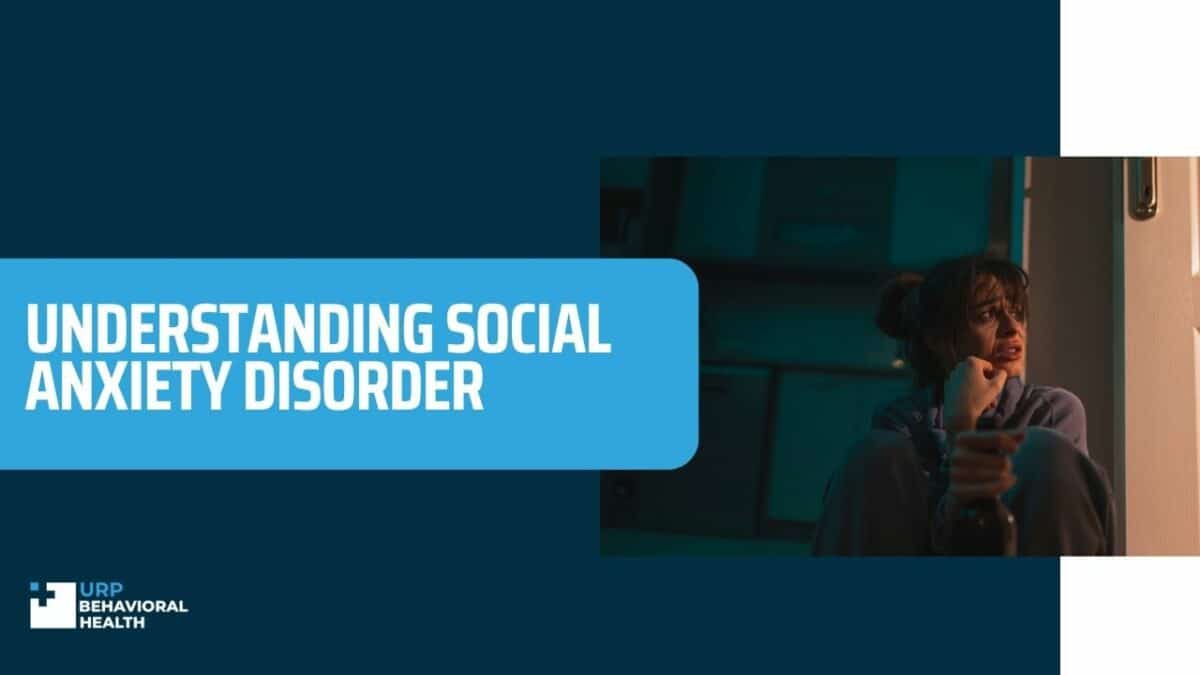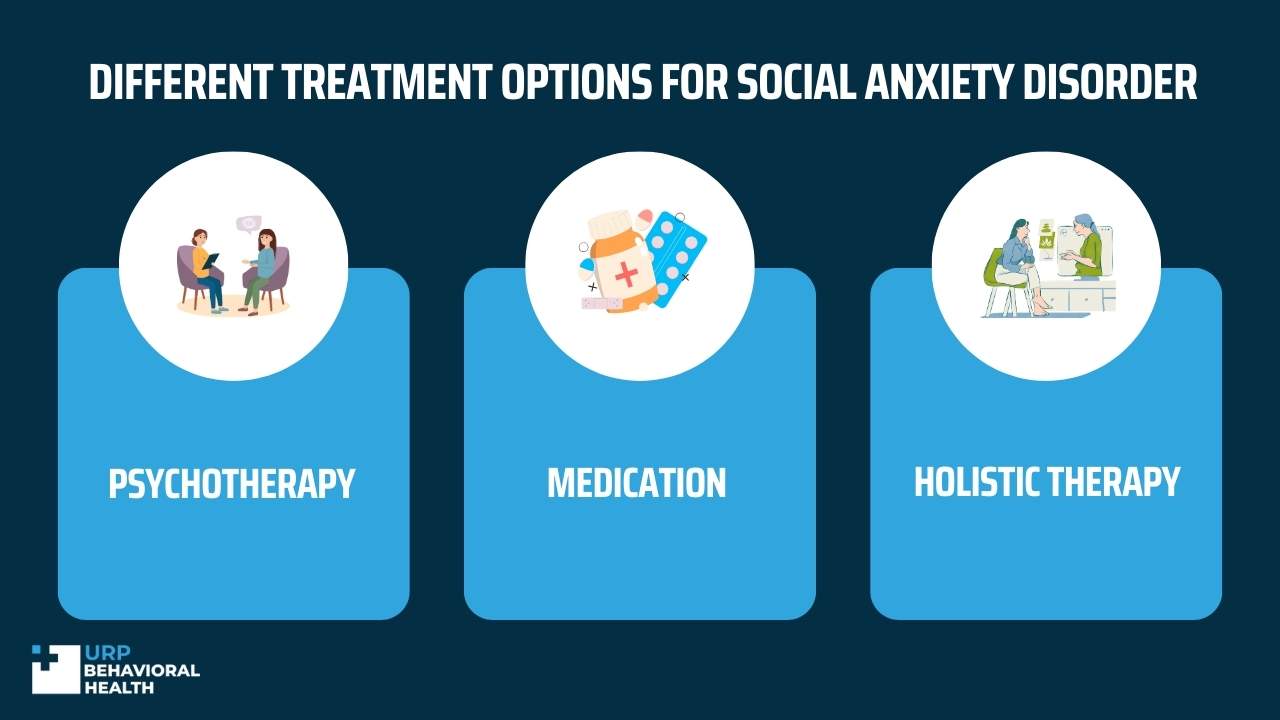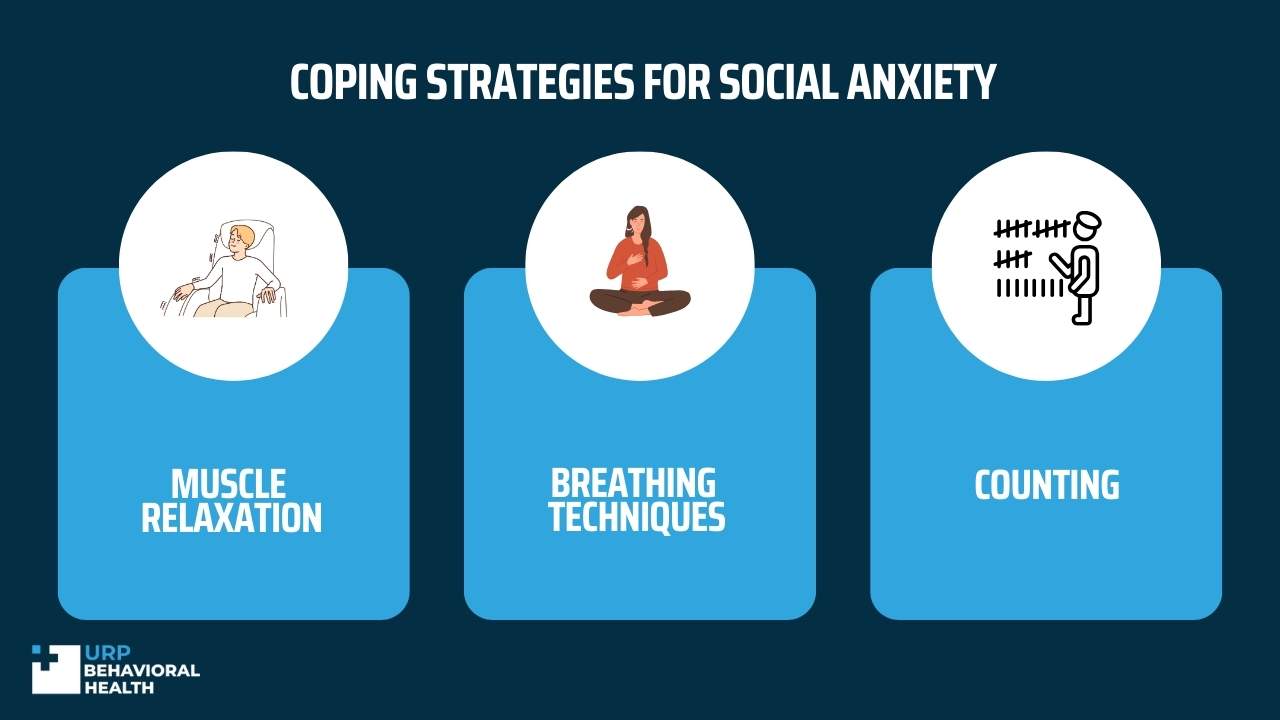Social Anxiety Disorder Treatment Center

Do you worry that other people are judging you? Do you get overly anxious when you’re asked to give a presentation at work or when you meet new people? We all get a little shy occasionally, but when this feeling of anxiety consistently impairs your ability to function, it could be cause for concern. If these feelings persist for six months or more, you may be experiencing a social anxiety disorder. The National Institutes of Health explains that over 12 percent of US adults develop the condition at some point.
So, what’s there to know about this condition? Let’s start by covering what it is, some of its common symptoms, and how you can treat and/or manage it.

What is Social Anxiety Disorder?
Formerly known as social phobia, this condition falls within the category of anxiety disorders and is characterized by a consistent and intense fear of others watching and judging you. When you have social anxiety, you fear situations where you can be criticized or negatively evaluated by others.
Some examples include having a job interview, attending parties where you’ll meet new people, or speaking in public. In fact, you may even struggle with everyday activities like using a public bathroom or eating in front of others because you’re scared of being judged.
Common Symptoms of Social Anxiety Disorder
People with social anxiety disorder experience a range of symptoms in response to feared situations. These can be physiological and/or emotional.
Physiological Symptoms
When exposed to feared social interactions, you may have typical symptoms like an increased heart rate, trembling, and sweating. The stress may cause you to take short, shallow breaths, which explains why you may have a hard time catching your breath.
Emotional Symptoms
People with social anxiety disorder have symptoms such as:
- Worrying that other people will notice your anxiousness.
- Avoiding situations where others may judge you negatively.
- Fear of speaking to strangers.
- Avoiding situations where you may become the center of attention.
- Not doing things or speaking to others because you’re worried about getting embarrassed.

Treatment Social Anxiety Disorder
Psychotherapy
Also known as talk therapy, is designed to help you develop coping skills so you become more confident in social situations. Therapists can use different approaches for talk therapy, but one of the most common ones is CBT, which can be applied individually or in groups.
CBT, an evidence-based treatment, involves working with your practitioner to narrow down negative thoughts and reframe them. If you’re in a group setting, you’ll get a chance to practice your skills with others through role-play. One form of CBT often used to help with social anxiety disorder is exposure. In exposure therapy, your practitioner prepares a safe environment in which they expose you to the feared stimulus. This helps reduce fear and avoidance over time.
Medication
Although psychotherapy is recommended as the first line of treatment, your psychiatrist can prescribe medication as well. Some formulations that mental health practitioners recommend for persistent anxiety include:
- Selective serotonin reuptake inhibitors: SSRIs impact serotonin, a neurotransmitter that contributes to memory, thinking, and feelings of well-being. By regulating serotonin levels, SSRIs are able to alleviate anxiety.
- Serotonin and norepinephrine reuptake inhibitors: SNRIs regulate serotonin and norepinephrine levels, which influence mood, behavior, and memory.
- Benzodiazepines: These are a class of anti-anxiety medications that work quickly but can have sedative effects and cause dependence. Therefore, they’re only recommended for short-term treatment.
Holistic Therapy
This treatment method combines both medication and psychotherapy along with measures to treat the individual as a whole. Therefore, it integrates therapies that improve your physical, mental, and spiritual well-being. For instance, your practitioner may recommend combining relaxation therapies, balanced nutrition, and regular exercise with evidence-based treatments.
Self-Help Techniques
Cognitive Restructuring
Based on cognitive behavioral therapy, this technique involves challenging the veracity of your negative thoughts. This allows you to realize that your thoughts are guesses about the outcome of a social situation rather than facts. By adopting realistic ways of thinking, you address feelings of anxiety in social situations.
Mindfulness
When practicing mindfulness for social anxiety disorder, there are different ways to go about it. One is mindfulness meditation, which can reduce rumination and overthinking that typically accompany the condition.
Another involves paying attention to the present moment while engaging in conversations. This gives you something else to focus on instead of your symptoms or how anxious you feel.

Coping Strategies for Social Anxiety
Muscle Relaxation
This technique alleviates the stress of being in a feared social situation by consciously tensing and relaxing each muscle. For instance, creating tension in your right arm and then slowly relaxing it before moving on to your other arm. Practicing this technique gives you a feeling of well-being as it reduces muscle tension and blood pressure.
Breathing Techniques
Anxiety may cause you to start taking shallow breaths, which can have major implications for your breathing in the long term. Deep breathing can activate the parasympathetic nervous system parasympathetic nervous system and calm the sympathetic nervous system, thereby reducing feelings of social anxiety.
Counting
When you’re exposed to a feared social situation, it’s hard to think about anything else except for how anxious you feel. In such circumstances, a task like counting backward allows you to focus on something besides your anxious symptoms and the fear of embarrassing yourself.
Conclusion
Though social anxiety can make it difficult to carry out everyday activities like talking to a cashier or making an appointment, there are social anxiety disorder treatments available. Through evidence-based interventions and professional guidance, you can manage symptoms and start thriving in social situations.
Let Us Guide You Towards Healing
We know that seeking treatment can be overwhelming, but our staff is here to make the process as smooth as possible. We’re available 24/7 to address any questions or concerns you may have.

